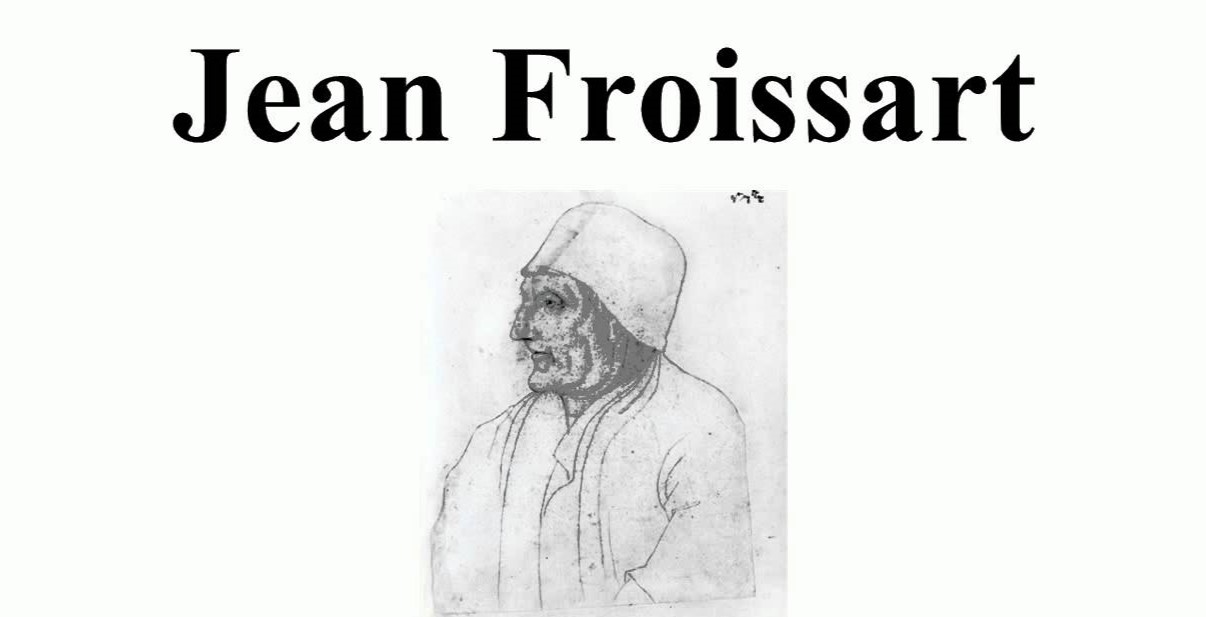
Froissart is a name that may not be immediately familiar to everyone, but the impact of his work reverberates through history. Jean Froissart, a 14th-century French chronicler, was a pivotal figure in documenting the events of the Hundred Years’ War and the lives of the nobility of his time. While a recounting of historical events may not sound exciting, you’ll be surprised to discover the fascinating facts that emerge from Froissart’s chronicles. From his close encounters with royalty to his unique perspectives on battles and courtly life, this article will delve into 12 surprising facts about Froissart that will shed new light on this influential historical figure. So, prepare to be captivated by the tales of a man who immortalized an era and continues to fascinate historians and readers alike.
Key Takeaways:
- Froissart was a 14th-century chronicler who traveled extensively, wrote captivating stories, and influenced the literary and historical world with his “Chronicles.”
- His work, comprising over 1.5 million words, sheds light on medieval chivalry, influenced historiography, and continues to be studied today, making Froissart a remarkable figure in history.
Froissart was a 14th-century chronicler.
Most famously known for his work “Chronicles,” Jean Froissart was a renowned French historian and poet during the 14th century. His detailed accounts and vivid descriptions provide valuable insights into the historical events of his time.
Froissart traveled extensively throughout Europe.
As a chronicler, Froissart journeyed to various countries, including England, Scotland, France, and Italy, documenting the social, political, and cultural happenings of the period. His travels enriched his understanding of different cultures and societies.
His work comprises over 1.5 million words.
The “Chronicles” by Froissart is an extensive historical record, covering over 1.5 million words. This monumental work provides a comprehensive account of the Hundred Years’ War, the Black Death, and many other significant events of the time.
The “Chronicles” contain eyewitness testimonies.
Froissart’s unique approach to chronicling events involved interviewing individuals who had firsthand experience. This methodology allowed him to include detailed and authentic testimonies in his writings, making his work highly regarded by scholars.
Froissart was a master storyteller.
Known for his captivating narrative style, Froissart’s chronicles are not just a mere compilation of facts but engaging stories that bring historical events to life. His ability to weave together various accounts and create a cohesive narrative sets him apart as a master storyteller.
His work was influential in the literary world.
Froissart’s “Chronicles” had a significant impact on the development of historical writing and literature. Many later writers drew inspiration from his style and methodology, making him a cornerstone figure in the realm of medieval literature.
Froissart’s work was highly sought after.
During his time, Froissart’s chronicles were in high demand among the nobility and ruling classes. His firsthand accounts and detailed descriptions were considered valuable resources for those seeking knowledge and understanding of historical events.
The “Chronicles” were initially written in French.
Froissart composed his work in his native language, French. However, his chronicles were later translated into several other languages, allowing a wider audience to access and appreciate his historical insights.
His work shed light on the chivalric code.
Froissart’s chronicling of the Hundred Years’ War provides valuable insights into the world of medieval chivalry. His descriptions of battles, tournaments, and the conduct of knights offer a glimpse into the code of honor and valor that governed the knights of the era.
Froissart’s work was revered by rulers.
The “Chronicles” gained favor with many prominent rulers, including King Edward III of England and King Charles V of France. These rulers recognized the historical significance of Froissart’s work and held it in high regard.
The “Chronicles” influenced the field of historiography.
Froissart’s approach to chronicling events, including interviewing eyewitnesses and emphasizing personalized accounts, had a lasting impact on the study of history. His methods and techniques influenced the development of historiography as a discipline.
Froissart’s work continues to be studied today.
The “Chronicles” by Froissart remains a valuable resource for historians, scholars, and enthusiasts interested in the medieval period. Its enduring significance in the academic world ensures that Froissart’s legacy continues to be celebrated.
Conclusion
In conclusion, Froissart is not just a name from history books; there are fascinating and surprising facts about him that are worth exploring. From his extensive travels to his detailed chronicles, Froissart left a lasting impact on the literary and historical world. His ability to capture the essence of the medieval period and his dedication to documenting the events of his time make him a respected figure in the field of historical literature. Whether you are a fan of history or simply curious about the medieval era, delving into the life and works of Froissart is sure to be an enlightening and captivating journey.
FAQs
Q: Who was Froissart?
A: Froissart was a 14th-century French chronicler and poet known for his extensive works documenting the events of the Hundred Years’ War and the medieval period.
Q: What were his major works?
A: Froissart’s major works include the Chronicles of Froissart, which chronicle the events of the Hundred Years’ War, as well as various poems and ballads.
Q: Why is Froissart significant?
A: Froissart is significant because his works provide valuable insights into the medieval period and the events of the Hundred Years’ War. His writings offer a unique perspective on the social, political, and military aspects of the time.
Q: How did Froissart gather information for his chronicles?
A: Froissart traveled extensively and conducted interviews with key figures involved in the events he documented. He relied on firsthand accounts and eyewitness testimonies to create a comprehensive record of the time.
Q: What makes Froissart’s writings unique?
A: Froissart’s writings are unique because of his keen observational skills and his ability to bring the characters and events to life. His vivid descriptions and personal narratives make his works engaging and relatable.
Q: Did Froissart have any influence on later writers?
A: Yes, Froissart’s writing style and approach to chronicling historical events influenced many later writers, including Geoffrey Chaucer, who was inspired by Froissart’s vivid storytelling techniques.
Froissart's captivating chronicles have left you craving more fascinating historical and literary gems. Embark on a whimsical journey through the magical world of Narnia, where C.S. Lewis' imagination knows no bounds. Immerse yourself in the enchanting realm of verse and rhyme, discovering the power of words to move hearts and minds. Finally, step back in time and explore the awe-inspiring Alcobaça Monastery, a testament to the grandeur and intricacies of medieval architecture. Each new adventure promises to enlighten, entertain, and leave you marveling at the wonders of human creativity and history.
Was this page helpful?
Our commitment to delivering trustworthy and engaging content is at the heart of what we do. Each fact on our site is contributed by real users like you, bringing a wealth of diverse insights and information. To ensure the highest standards of accuracy and reliability, our dedicated editors meticulously review each submission. This process guarantees that the facts we share are not only fascinating but also credible. Trust in our commitment to quality and authenticity as you explore and learn with us.


